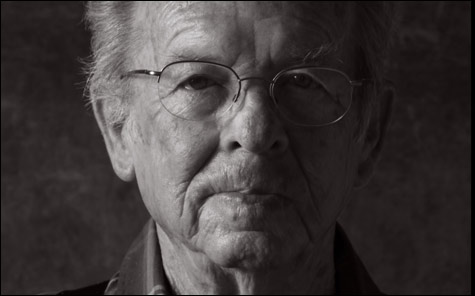
BEST HEARD LIVE: The new Charlie Louvin is a missed opportunity. |
NASHVILLE — How old-school is Country Music Hall of Famer Charlie Louvin? Well, there’s the crusty-but-playful 79-year-old’s humor. After struggling with a microphone stand that kept sliding down toward his belt buckle during a free concert at Grimey’s music shop two Saturdays ago, he announced to the wall-to-wall crowd, “I’ve got a French microphone. It keeps trying to go down on me.”
And, of course, there’s his history. Louvin — who appears at Club Passim this Friday — and his brother Ira began in the 1940s singing close harmony gospel; only gifted siblings can sound so heavenly. Inspired by Grand Ole Opry performers the Delmore Brothers, the Louvins took a vocal style based on the church tradition of shape-note singing from the nave to the stage and joined the Opry themselves in 1955. Their recordings of “Great Atomic Power,” “When I Stop Dreaming,” “Pitfall,” “I Don’t Believe You’ve Met My Baby,” and “The Kneeling Drunkard’s Plea” are touchstones for retro-country hipsters, and the cover of their Satan Is Real (Capitol), which places the white-suited Charlie and Ira on a bed of fiery coals as a glowering cartoon Devil looms behind, is bedrock kitsch.
A car wreck claimed Ira in 1965, but Charlie Louvin soldiered on, recording a stack of solo and duet albums into the 1990s, many revisiting his musical past. Despite his Hall of Fame status and the adoration of the fans who continue to attend his concerts, the same big labels that ignored gray-haired Johnny Cash till he started making albums with modern rock/rap producer Rick Rubin have ignored Louvin. So his first disc in a decade, the new Charlie Louvin, is on NYC-based indie Tompkins Square.
Charlie Louvin suffers from a lack of new material — and imagination — despite the presence of such skilled contemporary writers as Elvis Costello, Wilco’s Jeff Tweedy, and Will Oldham. They’re among the guests who sing and play with Louvin on a dozen songs. Alex McManus of Bright Eyes, Chris Scruggs of BR-549, and country stalwarts George Jones, Bobby Bare, Tom T. Hall, and Marty Stuart also pitch in. Bell-toned singer Dianne Berry and Bare do make magic with Louvin, and the rest persevere through the umpteenth, textbook renditions of standards “Kneeling Drunkard’s Plea,” “Worried Man Blues,” and the like. But compared with the inventive production and contemporary songs on recent comeback discs that have propelled R&B veterans Solomon Burke and Bettye Lavette to new listeners, Charlie Louvin seems like a missed opportunity.
As for Louvin, his voice is as cracked and weathered as an old pine board, but he still uses it beautifully. When he rears up in pitch and quavers with fragility, it underscores the humanity of the morality plays, like this disc’s “The Christian Life,” that he’s favored throughout his life. And those qualities bring unvarnished love to “Ira,” his tribute to his high-tenor-singing brother and this disc’s sole new tune.
Live at Grimey’s, Louvin proved a robust character and a charmer. At least until he regressed to the Old South with an offhand remark about how it was too bad the FCC had given the clear-channel AM radio waves to “minorities.” Ugh. His capable four-piece band supplied him with all the right harmonies as he sang his past, negotiating the arcs and twists of the Brothers’ “Great Atomic Power” and “When I Stop Dreaming” and his own “See the Big Man Cry, Mama” and more for a riveting hour. At least he’s approaching his 80th birthday, on July 7, on his own feet and his own terms.
CHARLIE LOUVIN | Club Passim, 47 Palmer St, Cambridge | March 9. | 617.492.7679